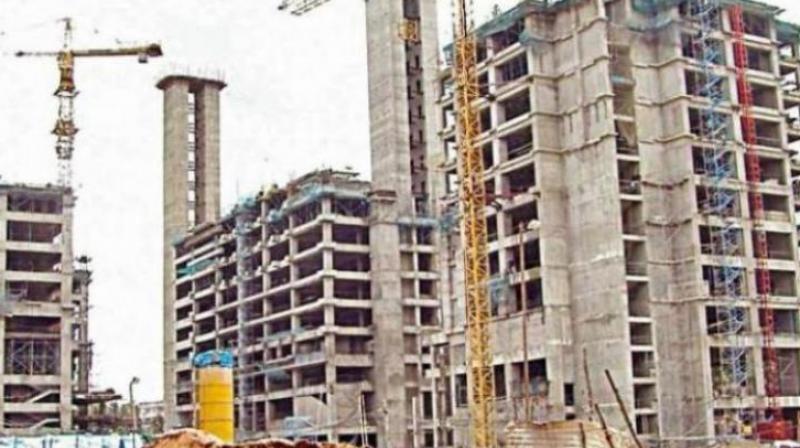Commercial realty growth is driving Bengaluru’s residential realty growth
Big ticket leasing and purchase of commercial office space has dominated Bengaluru’s commercial realty in 2018-19.

The Silicon Valley of India has become the epicentre of commercial real estate activity over the last couple of years.In fact Bengaluru, at 7.9 million sqft, leads the way in the absorption of commercial space among all the cities in India, according to a report by realty analysts JLL measuring data for the period Jan-Sep 2018.The city’s commercial realty is driven by the expansion of large IT clusters across the city as developers scramble to cater to the growing demand for office space.
Another notable factor driving the growth of commercial realty in Bengaluru is the increase in the number of startups being seeded in the city. According to a NASSCOM report titled ‘Startup Ecosystem’, in 2018 alone, 1200 new startups were added to the city’s already existing 7000-7500 startups. This can also be seen from the fact that coworking space operators are graduating into managed space providers to cater to the overwhelming demand for this segment of flexi-office space. Many heavily funded startups are making big-ticket acquisitions or leasing of commercial spaces.
The rise of commercial real estate in Bengaluru has also resulted in some unsurprising but positive trends such as the growth of residential real estate thanks to the migrant workforce settling here. Below we look at some of the main drivers of commercial real estate in Bengaluru and explore the relationship between the two segments of real estate.
Co-working spaces - The Crown Jewel of Commercial Realty
Coworking spaces are transforming this generation’s work culture. Fuelled by startups, coworking spaces are bucking the trend. A KPMG report on commercial real estate notes that by the end of June 2018 there were 200 coworking players offering around 400 shared workspaces across India, compared to just 30 centres recorded in 2010. Bengaluru’s market accounts for 32 per cent of all the coworking spaces in the country. These numbers would become multifold if one takes into account coworking spaces in the unorganized sector.
Big ticket leasing and purchase of commercial office space has dominated Bengaluru’s commercial realty in 2018-19 such as Flipkart’s recent acquisition of 0.8 mn sq. ft. office space in Embassy Tech Village, IKEA’s acquisition of 50,000 sqft office space in Nagasandra, Facebook’s 220,000 sqft of commercial space in Embassy GolfLinks and Amazon’s 3 million sqft of office space. The coworking giant WeWork has further expanded its foothold in the city with an additional 1.5 lakh sqft of leased space.
Such investments are in tune with Bengaluru’s status as the city with the highest absorption of office space in the country. On the basis of the evidence available, the trend will continue to remain the same in the upcoming years.
Rise of Commercial Warehousing
With the rise of Bengaluru as a popular destination for e-commerce companies, it has also emerged as a logistical and warehousing hub. According to a Knight Frank report, warehouse absorption in Bengaluru went up from 1.28 million sqft in 2016 to 2.45 million sq. ft. in 2017, a staggering increase of 91 per cent in a year. Flipkart and Reliance Retail have recently leased about 170,000 sq. ft. and 442,000 sqft of warehouse space, respectively. Allcargo Logistics also recently announced that it agreed to lease out 3 million sqft of warehousing space for Flipkart and Decathlon.
Increased Investments by Homebuyers
As more people settle in Bengaluru, residential realty also receives a boost as witnessed by the upsurge in sentiment and sales over the last year. According to a Knight Frank report, it has witnessed positive YoY growth in both launches (11 per cent) and sales (22 per cent) in 2018. Bengaluru was also the only city in the country that witnessed a higher percentage of residential real estate sales than launches. Bengaluru’s residential market has revived while capitalising on the growth in the commercial sector.
Conclusion
A recent press release by Bengaluru International Airport (BIA), revealed that it catered to more than 25 million passengers in 2017. The figures are forecasted to reach 45 million by the end of 2021 and touch 65 million passengers by 2025. Therefore, it is not surprising to see a great deal of infrastructure being developed around the airport in order to provide connectivity from the airport including the development of several thousand acres of IT Parks and Aero hubs.
Bengaluru’s popularity as the preferred office and commercial destination of the country bodes well for the city’s residential real estate sector. With a wide spectrum of workers making Bengaluru their home, developers are also being meticulous in customising their residential offerings for those preferring to live close to work and in a high growth corridor.
By Ashish Mahajan,Co- Founder and Spokesperson, PropStory
